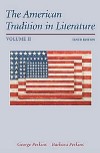"Murder in the Cathedral" dramatizes the life and assassination of the Christian aint and Britain's Archbishop Thomas à Beckett in 1170 A.D. Like Beckett, Ash-Wednesday and Four Quartet reflect T. S. Eliot's considerations of Christian faith in problematic contexts, concerns he addressed in a number of prose essays as well (see Eliot's After Strange Gods, a Primer of Modern Heresy). Each work reflects Eliot's struggles over matters of faith in the first period of his life. (Perkins). The "modernist" works from the beginning of his career-"The Love Song of J. Alfred Prufrock," "Gerontion," "The Hollow Men," and "The Waste Land"-readings included in our text-are the works more often remembered and anthologized introductory college texts. Each of these poems complements Eliot's demand for the separation of the artist and the art; that is, the brooding despair expressed in the works was not necessarily Eliot's own. Eliot was a serious student of his craft, highly learned and studied in world literature, the references to which seem to drip spontaneously from the point of his pen. He was well-informed to the movements of his day- to the "symbolist school," the French impressionists, "expressionism," to theories of time and space, to analyses of consciousness and the unconscious, to "realism" and its various manifestations, including Ezra Pound's "imagism." The meanings of the lines cannot be divorced from their allusions to works in his private library of readings. The editor's notes are essential to a fuller appreciation and interpretation of each work. |



 2003 McGraw-Hill Higher Education
2003 McGraw-Hill Higher Education